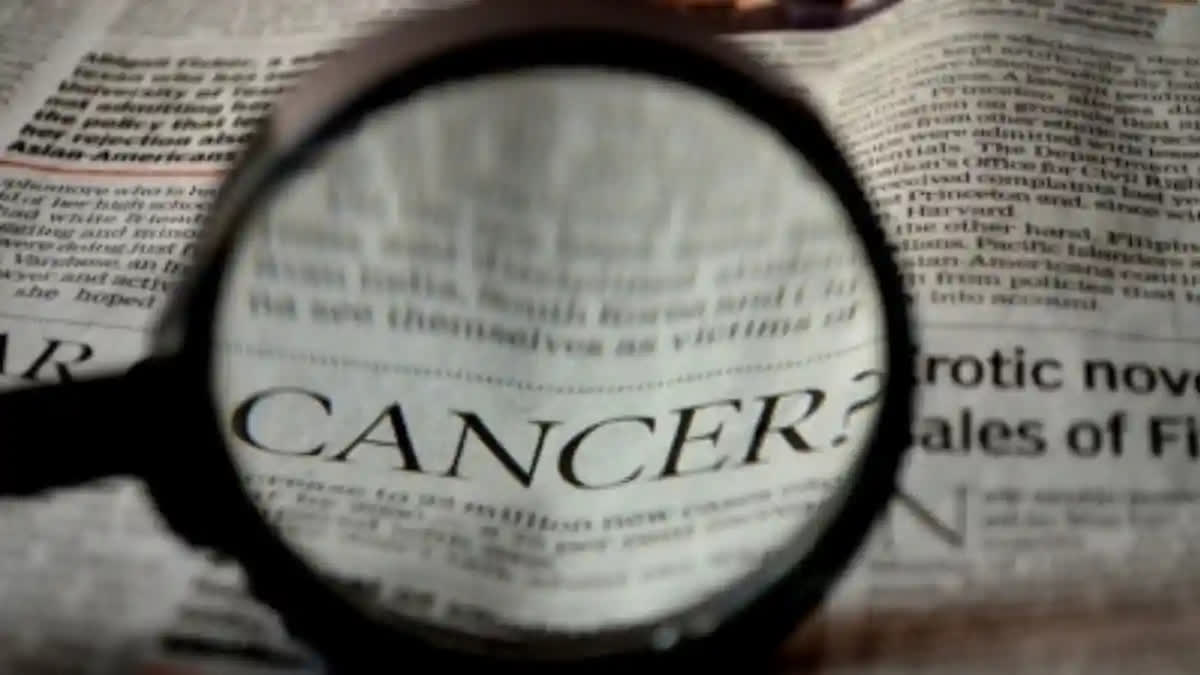Hyderabad: Cancer is one of the world’s leading killers. In India, with around 14, 00, 000 new cancers diagnosed & over 8,50,000 deaths every year, the Cancer ‘tsunami’ in India has rapidly emerged to become a major public health concern.
World Cancer Day is marked on February 4 to raise awareness of cancer in addition to improving patient services and pressing governments and individuals across the world to take action against the disease.
Cancer diagnosis can leave a host of problems in its wake - physical, financial, and emotional hardships often persist after diagnosis and treatment. Although we are living in times of phenomenal scientific advancements, poor communication skills are well and truly one of the major barriers to providing effective cancer care in Bharat.
Being informed of a cancer diagnosis is a huge shock, particularly so when it strikes at a young age. It doesn’t sink in so easily and one may question if it is true. A loss of control over life steps in, with a range of emotions such as anxiety, anger, isolation & fear of dying, which are all too common & natural. ‘Will I lose my breast?’ is one of the first questions that comes to mind when diagnosed with breast cancer.
Cancer affects the body, mind, and soul. And hence, treating just the body isn’t enough. Counselling is therefore a vitally important component of cancer care, which gives patients and their relatives the distinct opportunity to be better informed, better prepared, and more importantly, feel more in control at every stage of the treatment.
Clinical competence & effective communication are both essential skills for every doctor. In my opinion, Counselling constitutes more than 50% of treatment as it plays a crucial role in the recovery of mind, body, and soul. It involves an unhurried discussion between the Specialist & Patient about the diagnosis/various treatment options in a sensitive and supportive environment. Equally, adequate psychological and emotional support is given during Counselling Sessions, which provides the much-needed ‘inner strength’ & determination to fight the ‘unwelcome visitor’ in their life.
Patients should be actively encouraged to ask questions regarding the significance of various investigation modalities, treatment options/how they might impact everyday life, possible side effects, short/long-term complications, and many more. It is the Specialist’s duty to clarify questions posed in a simple, effective & easy to understand format.
Communication is a distinct art of talking Medicine in the language of the non-medical man. Compassion and empathy must be at their best whilst breaking bad news. In giving patients time and listening to them, doctors will find some of the real rewards of practicing Medicine. I remind myself every day that listening to the patient is far more important than talking. In this day and age of heavy reliance on tests, one must not forget that the diagnosis of a condition, in the vast majority, can be made through good history taking and physical examination. Hence good listening is the best diagnostic modality.
Until a few years ago, “Communication Skills” was not even part of the Indian Medical Curriculum. Although it is now included in the new Medical Curriculum from 2019, there is still no structured, uniform, and robust assessment process in place across the nation. It is pertinent to mention here that however knowledgeable and skilled one may be, it is virtually impossible to clear the Undergraduate MBBS Course or Specialist Fellowship Examinations (Postgraduate Course) in the UK without demonstrating adequate communication skills. A Fail in this section means an overall Fail, even if one does well in other aspects of the Examination.
On the occasion of World Cancer Day, I request the powers that be to ensure Communication Skills & their formal robust assessment become an integral part of the Undergraduate & Postgraduate Medical Curriculum in Bharat. I conclude with a poignant statement made by Edward Livingston Trudeau, a 19th Century Physician, which is relevant even today - “Cure sometimes, Relieve often, but, Comfort always”.
(Disclaimer: The opinions expressed here are those of the author)
Read More



